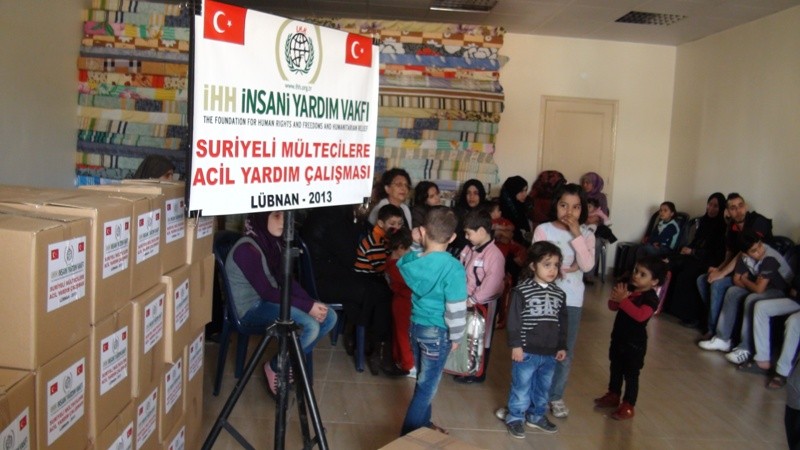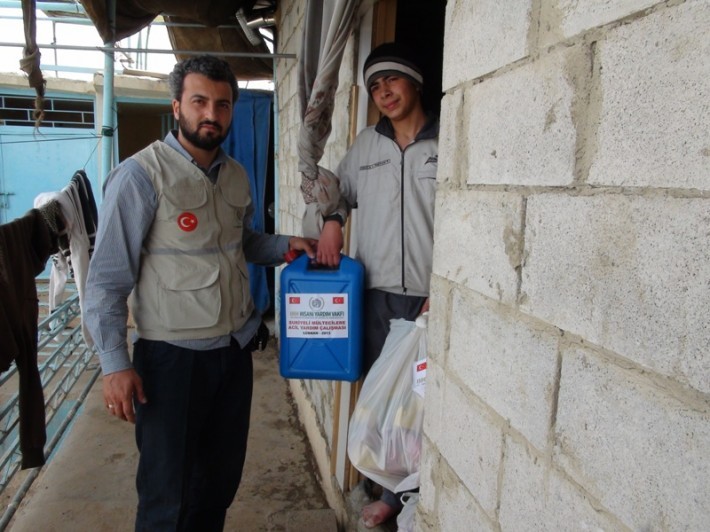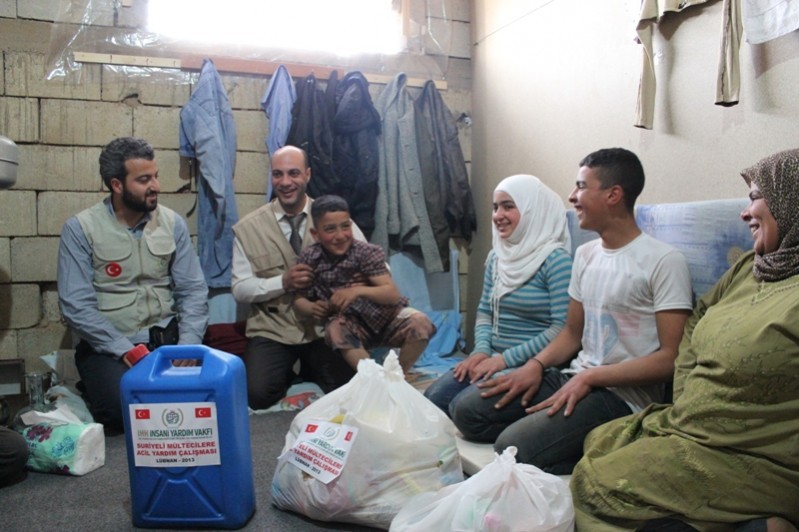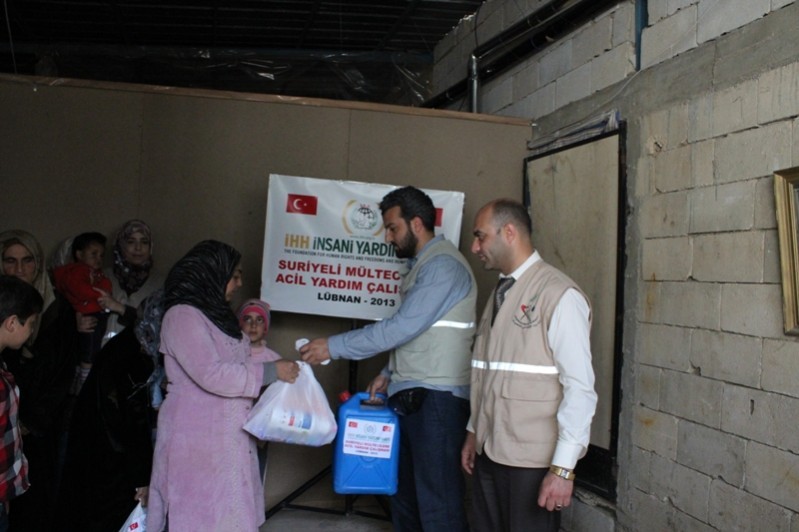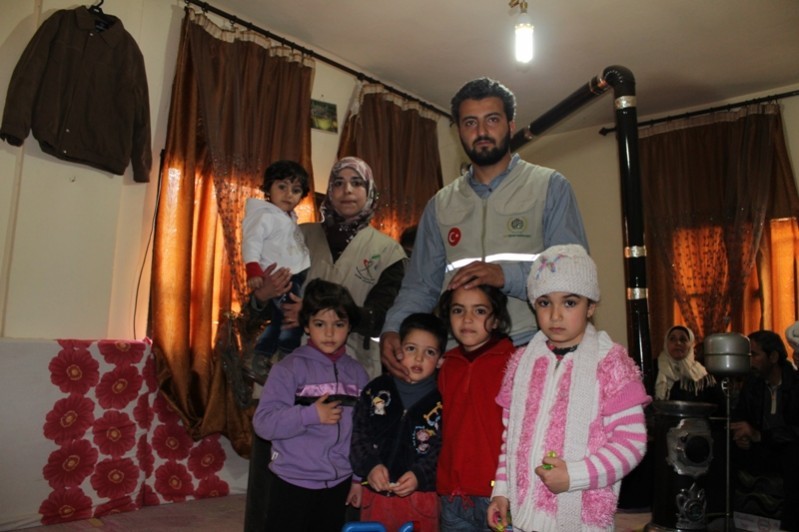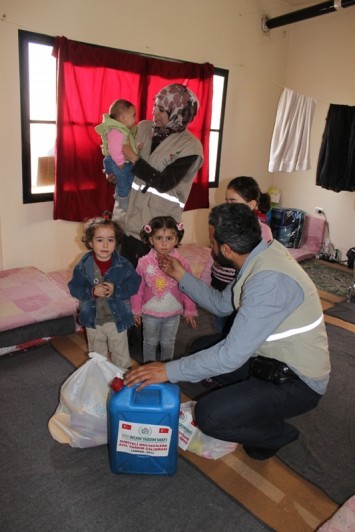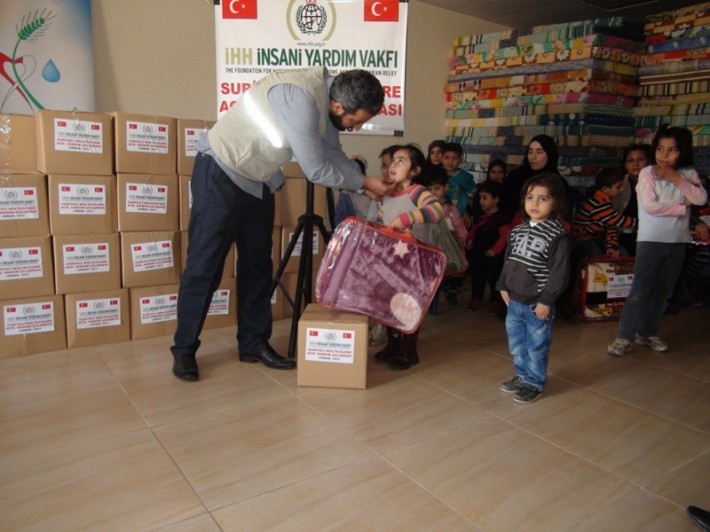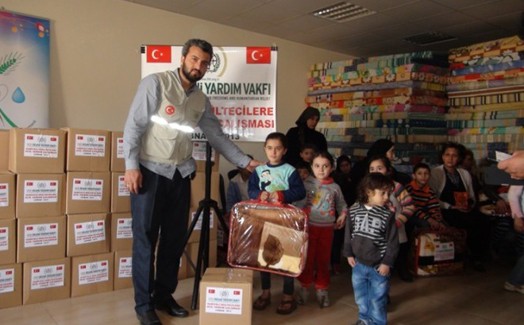
IHH Middle East deputy coordinator Hamza Dinçer and his team have carried out relief efforts in the refugee camps in Beirut, Tripoli, Baalbek and Sur (Tyre) provinces of Lebanon for three days.
IHH team has delivered food packages, blankets, mattresses and fuel card to hundreds of Syrian and Palestinian refugees in Burj el-Barajneh Camp in Beirut, Baddawi Camp in Tripoli, al Jalil Camp in Baalbek and Rashidieh Camp in Sur. IHH team has also provided financial assistance to newcomers of the camps. IHH has provided various types of aid to 1,100 families in total.
IHH’s Dinçer made a call to Islamic countries in particular, asking them to increase the amount of their aid for Syrians.
Giving some information about the circumstances in the refugee camps, Dinçer said: “Refugees live under very difficult circumstances in the camps. We have seen that 15-20 people live in a very small space together. The circumstances are really tough. Refugees were made to live in a very small and packed area, with narrow streets. Refugee families live in spaces where they have no privacy. For instance, no permission is given even to maintain the houses in Burj el-Barajneh Camp. It is banned to buy nylon tents, home appliances or other things to make the houses better and bring them to camps. For example, let’s say the metal plate of your house was broken, you cannot change it because it is banned. When refugees living by the coast repair the houses they live, officials take action against them. Infrastructure in all the camps is insufficient. In narrow streets where there is no sunlight, houses are attached together. Children are given education at sloppy schools in these camps. The biggest problem with higher education is that families are unable to pay for the expenses. The lack of hygiene in the camps also leads to outbreak of many diseases. Medical services in Lebanon are very expensive and medical services in the refugee camps are very insufficient. Lebanese government is too indifferent to this problem. Unemployment is very widespread among refugees. Lebanese government banned refugees from working in 65 types of profession. University graduates are also not allowed to work.”
Refugee camps in Lebanon
In the meantime, there are 12 big refugee camps in Lebanon which have been established at different times since 1948. In addition to the al- Bared, al Baddawi, Dbayehi, Burj el-Barajneh, Shatila, Marliyas, Ain Al-Hilweh, al Miyye, Rashidieh, al Burj el-Shemali, al Bas, al Jalil camps, there are small camps and temporary settlements for refugees whose number grow day by day.
Following Israeli forces’ occupying Palestine in 1948, some of the displaced Palestinians took shelter in Lebanon. Their number has grown over years and they have been trying to continue their lives under difficult circumstances in refugee camps. Tens of thousands of people who have been directly affected from all the crises in the region sought for a future for them in Lebanon. The 70-year-long refuge problem in Lebanon continues tragically. It seems that the Palestinian refugee problem will stay as an issue that always waits for a solution in this region.
Undoubtedly, the most famous refugee camps in Lebanon are Sabra and Shatila. They are remembered with the Palestinians who were massacred with the alliance of Israel and Christian Phalangists.
More than 90 percent of the refugees in Lebanon are of Palestinian origin. In the meantime, Syrian refugees who come to the region in growing numbers every day are sent to various camps in Lebanon. Palestinian refugees who come from Syria prefer to stay in the camps where Palestinian refugees stay mostly. Following the bombing of the Baath army of the Yermouk Camp in Damascus where Palestinian refugees used to stay, there are more people coming to the camps in Lebanon.
Refugees in Lebanon have to live and work in places shown by the state. Refugees are denied from becoming Lebanese citizens and own property. They are banned from working in 65 types of profession. For instance, a refugee cannot work in a municipality; they cannot work as engineers or doctors. They can perform their professions only in the camps they live. Due to these problems, refugees are even unable to pay their rents, so it is getting more and more difficult for them to support their lives.
The total number of Syrian refugees in Lebanon has exceeded 350,000. Talal Hussein Mustafa, president of Lebanese Humanitarian Aid Association Gavs which takes aid to refugees in Lebanon together with IHH, directs criticisms at Lebanese government for its handling of the refugees.
Talal Mustafa criticizes Lebanese government for its pro-Assad attitude “The fact that Lebanese government is at the side of Syrian President Bashar al-Assad makes things more difficult. Let alone making things easier, the Lebanese government is doing its best to make things more difficult. Just think, two of our Palestinian brothers who fled the massacre in Syria have lost their lives. We cannot even find a place to bury them. They are even denied from being buried in cemeteries. Graves are sold at very high prices. This is only one side of the issue. On the other side, there are people who try to live in packed refugee camps. There are endless problems.”
Talking about their joint relief efforts with IHH, Talal Mustafa added: “We have been carrying out relief efforts for Palestinians who live under difficult circumstances in the refugee camps. It is very difficult to see the support of Lebanese authorities for these people regarding their needs for education, accommodation, healthcare, development and law. Despite this, we have been carrying out various relief efforts for these people with IHH.”
